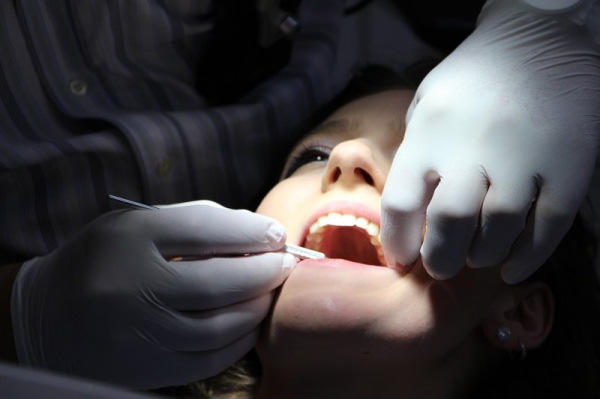
Recurrence of atrial fibrillation in patients who have undergone catheter heart ablation may be reduced by treating gum disease with three months of the procedure, new Japanese research out Wednesday shows. Photo by rgerber/Pixabay
Recurrence of atrial fibrillation in patients who have undergone catheter heart ablation may be reduced by treating gum disease within three months of the procedure, new Japanese research out Wednesday shows.
The two-year Hiroshima University Hospital study of 288 patients found gum inflammation was a strong predictor of AFib recurrence after non-surgical ablation, with the team positing a correlation between reducing oral inflammation and a reduced likelihood of a heart flutter re-occurring — but they were not able to establish the linkage mechanism, the the American Heart Association said in a news release. Advertisement
The research published in the Journal of the American Heart Association, one of the first studies looking at how AFib is affected by gum inflammation, calls for the routine examination of AFib patients for gum disease and that those who have the condition should be signposted for treatment by a dental provider. Advertisement
The findings could have major health care implications given AFib, which boosts an individual’s stroke risk by 500%, is expected to affect more than 12 million Americans by 2030, the association said, while Centers for Disease Control figures show around half of U.S. adults aged 30 and up have some form of periodontal or gum disease, with incidence rising with age.
“Gum disease can be modified by dental intervention. Proper management of gum disease appears to improve the prognosis of AFib, and many people around the world could benefit from it,” said lead study author Dr. Shunsuke Miyauchi, an assistant professor at Hiroshima University’s Health Service Center.
Comparing 97 patients who had received both radiofrequency catheter ablation and gum inflammation treatment with 191 ablation patients who received no gum disease treatment the team found AFib came back in 24% of patients during an 8.5-24 month follow-up period but recurrence was 61% lower in the treatment group.
Significantly, the roughly 1 in 4 patients in whom AFib did recur had more severe gum disease than those whose heart flutter did not return, an association that was verified by using a standard index used by dentists to measure the severity of gum inflammation. Advertisement
“While the main findings were consistent with their expectations, we were surprised how useful a quantitative index of gum disease, known as periodontal inflamed surface area or PISA, could be in cardiovascular clinical practice,” said Miyauchi who stressed that a multicenter randomized study was necessary to confirm results.
Other predictors of AFib included being female, experiencing irregular heartbeat for more than two years and left atrial volume enlargement and its associated thickening and scarring of connective tissues, explained Miyauchi.
“We are now working on further research to reveal the mechanism underlying the relationship between gum disease and AFib,” he said
The AHA said that while it currently did not include oral health as a heart disease risk factor, it acknowledged it could be an important gauge of overall system health and well-being.
“Bacteria from inflamed teeth and gums may travel through the bloodstream to the rest of the body, including the heart and brain. Chronic gum inflammation may be associated with other systemic health conditions, including coronary artery disease, stroke and Type 2 diabetes,” it said.
The study group comprised 288 Asian adults, 66% of whom were men, who were being treated for AFib with all undergoing an examination by a dentist prior to receiving catheter ablation for AFib. Catheter ablation is a procedure that uses radiofrequency energy to destroy a small area of heart tissue causing rapid and irregular heartbeats. Advertisement
This study was supported with the help of funding grants from the Japan Society for the Promotion of Science Johnson and Johnson Medical Research.